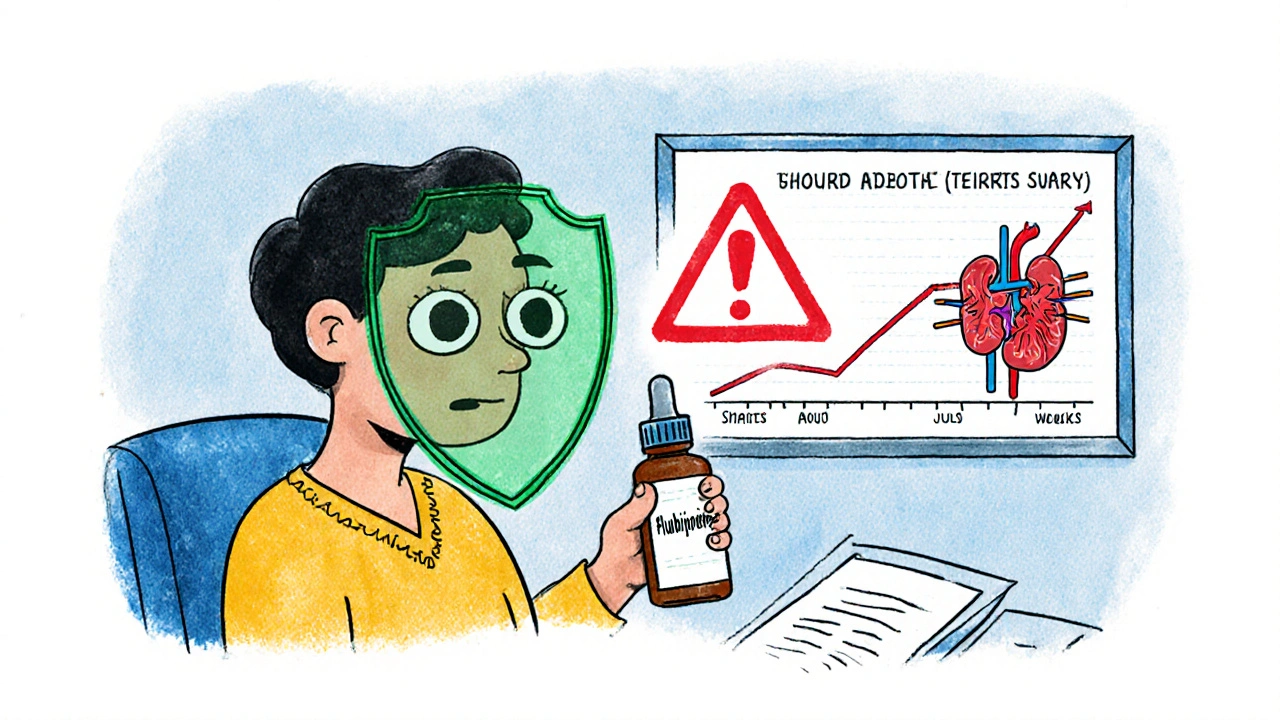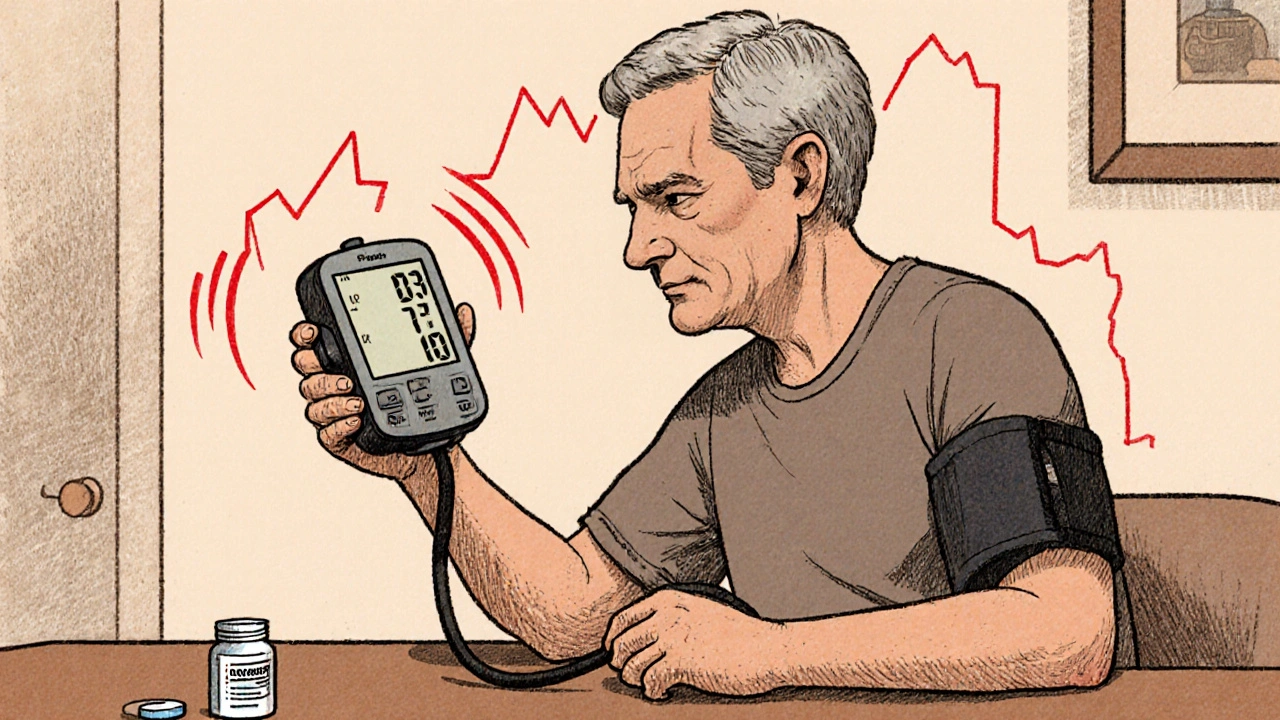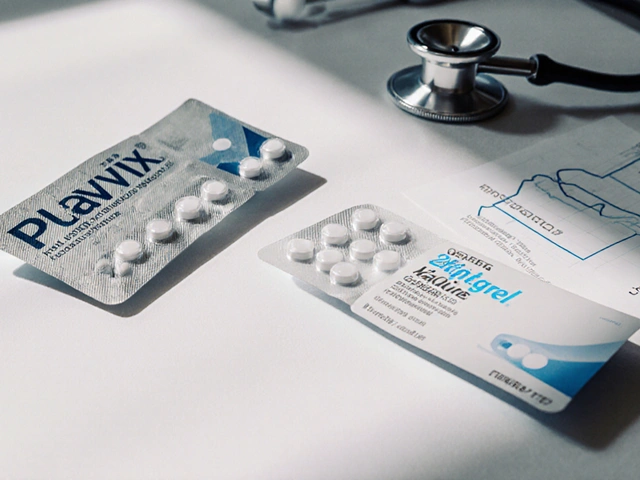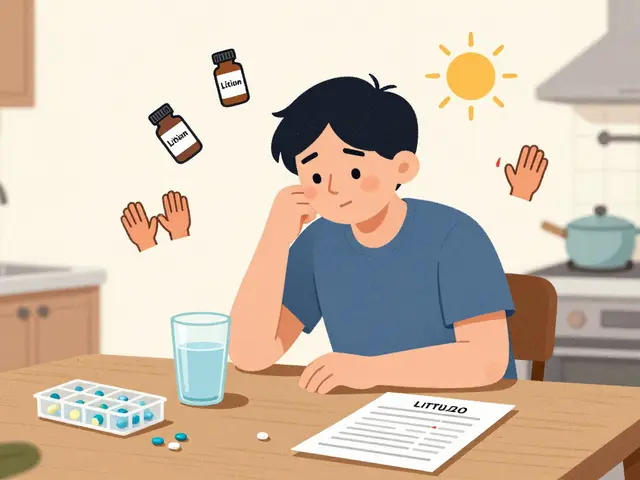If you're taking flurbiprofen for joint pain, arthritis, or a bad back, you might have heard whispers about it raising blood pressure. You’re not imagining things - this isn’t just an old wives’ tale. Flurbiprofen, like many NSAIDs, can affect your blood pressure in ways that aren’t always obvious. And if you already have high blood pressure, or are on medication to control it, this could matter a lot more than you think.
What is flurbiprofen?
Flurbiprofen is a nonsteroidal anti-inflammatory drug, or NSAID. It works by blocking enzymes in your body that cause pain and swelling. You’ll find it in prescription form - often as tablets or eye drops - and sometimes in over-the-counter products in other countries. In the UK, it’s mostly prescribed for conditions like osteoarthritis, rheumatoid arthritis, or after dental surgery. It’s not a painkiller you take casually. Unlike paracetamol, which just dulls pain signals, flurbiprofen attacks the source of inflammation. That’s why it works well for joint pain. But that same mechanism is what can cause trouble with your blood pressure.
How flurbiprofen affects blood pressure
NSAIDs like flurbiprofen interfere with kidney function. Your kidneys help regulate fluid balance and blood pressure by adjusting how much sodium and water your body holds onto. Flurbiprofen reduces the production of prostaglandins - chemicals that help keep your blood vessels relaxed and your kidneys working properly. When those prostaglandins drop, your kidneys hold onto more salt and water. That increases blood volume. And more blood volume means higher pressure inside your arteries.
Studies show that NSAIDs can raise systolic blood pressure by an average of 3 to 5 mmHg in people with normal blood pressure. For someone already on medication for hypertension, that small rise can be enough to undo the progress they’ve made. A 2023 review in the British Journal of Clinical Pharmacology found that flurbiprofen had a similar effect on blood pressure as ibuprofen and naproxen - not the worst among NSAIDs, but not safe either if you have existing heart or kidney issues.
Who’s most at risk?
Not everyone who takes flurbiprofen will see a spike in blood pressure. But some people are far more likely to. You’re at higher risk if:
- You already have high blood pressure (hypertension)
- You’re over 65
- You have kidney disease or reduced kidney function
- You’re taking diuretics, ACE inhibitors, or beta-blockers for blood pressure
- You have heart failure or a history of heart attack or stroke
- You take flurbiprofen regularly - more than a few days a week
People on multiple blood pressure medications are especially vulnerable. Flurbiprofen can make drugs like lisinopril or losartan less effective. That means your blood pressure might creep up even if you’re doing everything right - taking your pills, watching your salt, exercising. You might not even notice until your next check-up.

What does the evidence say?
In 2024, researchers at the University of Leeds analyzed data from over 12,000 patients using NSAIDs long-term. They found that those taking flurbiprofen had a 22% higher chance of their blood pressure rising above target levels compared to those using paracetamol. The effect was strongest in patients over 70 and those with pre-existing hypertension. The study didn’t find flurbiprofen to be more dangerous than other NSAIDs, but it did confirm that no NSAID is truly safe for people with cardiovascular risks.
Another key finding: the rise in blood pressure often happens within the first two weeks of starting the drug. That’s faster than many people expect. If you’ve just started flurbiprofen and feel unusually tired, get headaches, or notice swelling in your ankles, don’t brush it off. These could be early signs your body is struggling with fluid retention.
What should you do if you’re taking flurbiprofen?
If you’re on flurbiprofen and have high blood pressure - or even if you’re just worried about it - here’s what to do:
- Check your blood pressure at home. Buy a validated upper-arm monitor (not wrist ones). Take readings at the same time each day, for a week. Write them down.
- Talk to your GP or pharmacist. Don’t stop flurbiprofen on your own - sudden withdrawal can cause rebound pain. But do ask if there’s a safer alternative.
- Consider alternatives. Paracetamol is usually the first choice for pain relief if you have high blood pressure. Topical NSAIDs (gels or patches) may be safer since less enters your bloodstream. For chronic pain, physical therapy or low-dose antidepressants like amitriptyline can help without affecting blood pressure.
- Limit salt and alcohol. Both make fluid retention worse. Cutting back helps your body handle the drug better.
- Don’t mix with other NSAIDs. That includes ibuprofen in cold medicines or aspirin for heart protection. Combining them raises your risk even more.
When to get urgent help
Call 111 or see a doctor immediately if you experience:
- Sudden, severe headache
- Blurred vision or vision changes
- Chest pain or shortness of breath
- Swelling in your legs, ankles, or abdomen
- Significantly reduced urine output
These could signal a dangerous spike in blood pressure, fluid overload, or kidney damage - all real risks with long-term NSAID use.

Can you ever use flurbiprofen safely?
Yes - but only under careful supervision. If you have high blood pressure and need flurbiprofen for a short-term issue - like after a dental procedure or a flare-up of arthritis - your doctor might prescribe it for 3 to 5 days max. They’ll likely check your blood pressure before and after. For ongoing pain, they’ll usually try something else first.
Eye drops containing flurbiprofen (used for eye surgery or inflammation) are a different story. Very little of the drug enters your bloodstream, so they’re generally safe for people with high blood pressure. But always tell your eye specialist you’re on blood pressure meds.
What about natural alternatives?
Some people turn to turmeric, ginger, or omega-3s for pain relief. There’s some evidence these can help with inflammation, but they’re not strong enough for severe arthritis or post-surgery pain. They also aren’t risk-free - turmeric can thin your blood, and omega-3s can interact with anticoagulants. Don’t assume “natural” means “safe.” Always talk to your doctor before adding supplements, especially if you’re on blood pressure or heart meds.
Bottom line
Flurbiprofen isn’t a villain. It helps a lot of people manage pain. But it’s not a harmless over-the-counter pill either. If you have high blood pressure, heart disease, or kidney issues, it’s a drug that needs caution - not just a prescription. The safest approach? Don’t take it unless you’ve talked to your doctor. And if you’re already on it, monitor your blood pressure closely. Small changes in your routine can make a big difference.
Can flurbiprofen cause high blood pressure even if I’ve never had it before?
Yes. Even people with normal blood pressure can experience a rise in pressure after taking flurbiprofen regularly. Studies show an average increase of 3-5 mmHg in systolic pressure within two weeks. It’s usually mild, but for someone close to the hypertension threshold, it can push them over the line.
Is it safe to take flurbiprofen with blood pressure medication?
It’s risky. Flurbiprofen can reduce the effectiveness of common blood pressure drugs like ACE inhibitors, ARBs, and diuretics. This can cause your blood pressure to rise even if you’re taking your pills exactly as prescribed. Always tell your doctor you’re using flurbiprofen before starting or continuing any blood pressure treatment.
How long does it take for flurbiprofen to affect blood pressure?
Effects can show up within days - often within the first 7 to 14 days of regular use. The longer you take it, the greater the risk. That’s why short-term use (under a week) is less concerning than daily use for months.
Are there any NSAIDs that are safer for blood pressure?
No NSAID is completely safe for people with high blood pressure. Naproxen may have a slightly lower risk than ibuprofen or flurbiprofen in some studies, but the difference is small. For people with cardiovascular risks, paracetamol or non-drug options like physical therapy are usually preferred.
Can I use flurbiprofen eye drops if I have high blood pressure?
Yes. Flurbiprofen eye drops are applied locally and very little enters the bloodstream. They’re generally considered safe for people with high blood pressure, even those on multiple medications. But always inform your eye specialist about your medical history.
What should I do if my blood pressure rises while taking flurbiprofen?
Don’t stop the medication suddenly - that can cause pain to return sharply. Contact your doctor immediately. They may adjust your blood pressure meds, switch you to a different painkiller, or recommend a short break from flurbiprofen. Monitoring your blood pressure at home will help them make the right call.
If you’re managing chronic pain and high blood pressure, you’re not alone. Many people face this balance every day. The key is awareness - knowing what the risks are, tracking your numbers, and working with your healthcare team to find a solution that keeps you moving without putting your heart at risk.









james landon
28 Oct 2025 at 03:43Man, I took flurbiprofen for my back after that stupid lawn mower incident and didn’t think twice. Now I’m wondering if my morning headaches were just me being tired… or my BP creeping up. Gonna grab a home monitor this weekend. Thanks for the wake-up call.